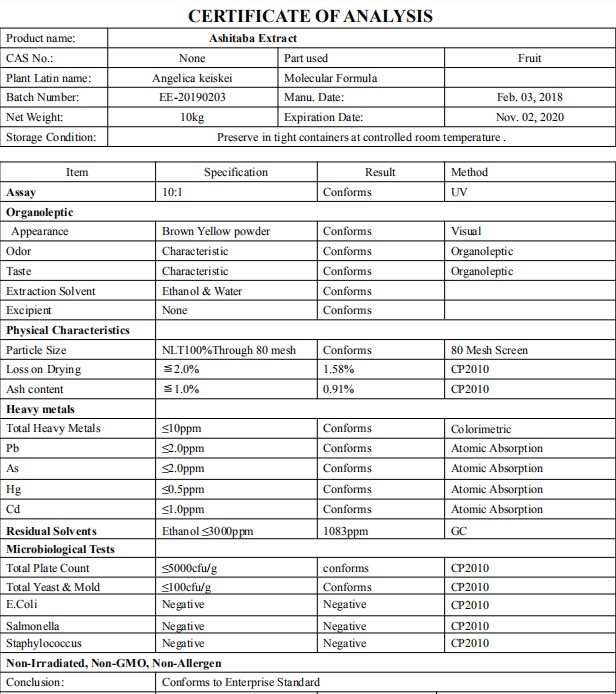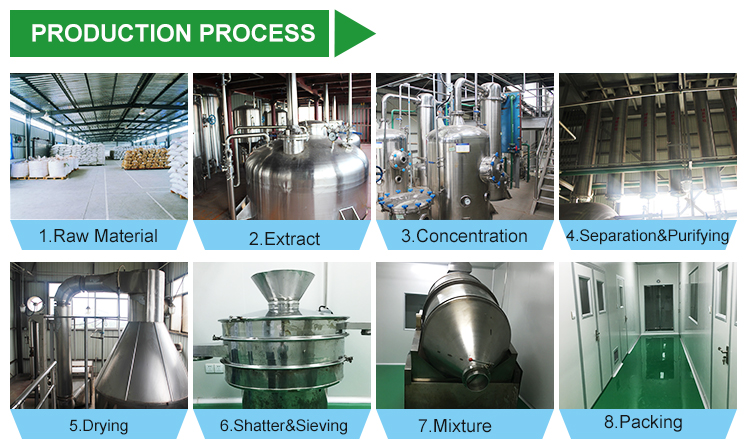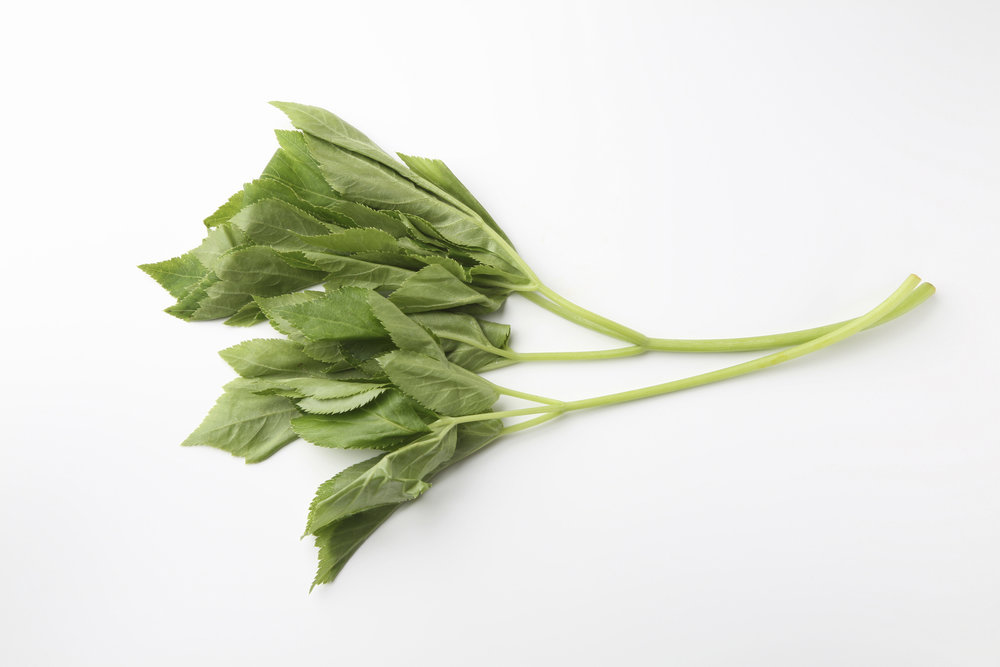Ashitaba Extract
Product Name: Ashitaba Extract
Latin Name: Angelica keiskei
Part Used: Leaf
Active Ingredient: CHALCONE
Appearance: Brown Yellow Powder
Specification: 5:1 10:1 20:1 30:1
Test Method: UV
Overview
Ashitaba extract is prepared from the leaf of Angelica keiskei . The nutrients contained in tomorrow’s leaves are extremely comprehensive and balanced, and they are a natural treasure trove of nutrients, without the need to ingest different nutrients from different foods. It can provide rich chlorophyll, vitamins, dietary fiber, protein, 16 kinds of amino acids and more than 20 kinds of minerals and special substances required by the human body.
Benefits
After the Second World War, Japan’s Hiroshima and Nagasaki were poisoned by the US military with atomic bombs, and tomorrow’s leaves were one of the first plants to germinate, and they were valued by Japanese agricultural administrations. Tomorrow leaves are native to Japan’s volcanic areas, especially Japan’s Hachijoji Island has the most abundant production. The local name is rarely affected by cancer and high blood pressure, and there are many longevity people. Therefore, it is called Changshou Island. After medical research, it is believed that it may be possible to eat with tomorrow’s leaves. related.
According to an internationally authoritative study conducted by Osaka Pharmaceutical University in Japan, tomorrow’s leaves have anti-aging effects, anti-ulcer, anti-thrombosis, anti-cancer, blood pressure lowering, blood lipids, blood sugar and cholesterol. It also contains plant fibers and CHALCONE substances. It is a plant homologous to medicines and foods. It is a herb and a vegetable. In addition to fiber, protein, various vitamins and minerals, The most special is the vitamin B12 and special flavonoids that are rare in plants.
Tomorrow’s leaves can improve the gastrointestinal tract, vision and sleep quality, and improve the body’s immunity, prevent cholesterol, and help with nervous stomach hyperacidity and stomach ulcers.
Tomorrow’s leaves contain 460 micrograms of “organic strontium” (an excellent antioxidant) per 100 grams. It is valuable, usually 100% absorbed by the gastrointestinal tract without wasting.
Technical Data Sheet


Certificates: ISO, Kosher


